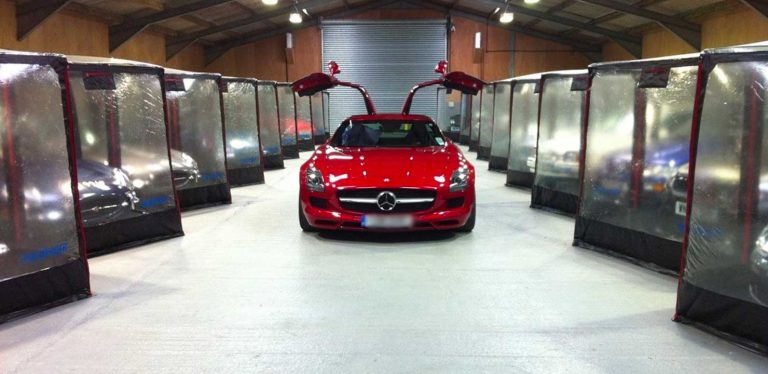There is no such thing as a policy for automobile insurance called "storage insurance." Simply put, it's just a word for the least amount of insurance coverage required for parked cars and not being driven. If you put your car in storage for an extended period and don't plan to use it, your auto insurance policy may allow you to cancel or decrease coverage for incidents that occur while driving. You should consider going with solely complete coverage if at all possible.
Even if you're not driving your car, drivers in certain jurisdictions are required to carry collision and comprehensive insurance coverage. The same is true for lenders if there is a lien on the car, such as in the case of an auto loan. For instance, if you were going on a lengthy vacation during which you wouldn't be using your car, you might switch to parked car insurance if your state permits such a thing if you wanted to save money on your auto coverage.
How Does Car Storage Insurance Work?
Because storage insurance is a subset of coverage, its operation is analogous to coverage in general. If you are permitted by state law to reduce your insurance coverage to liability alone, then it functions similarly to liability coverage. If you can only lower it to comprehensive, you can submit a claim with your agent if anything occurs to your parked car and you have comprehensive insurance. If you have comprehensive insurance, you can drop it to comprehensive.
Because an adjuster from your insurance will send you to inspect the damage, you must photograph and record every aspect of it. You need to be there to demonstrate what happened to the insurance adjuster. If you have comprehensive insurance and your parked car is damaged due to these situations, the only expense you will be responsible for paying is the deductible associated with your policy.
Many people have the mistaken belief that their auto insurance policy would cover any damage that happens to their car while it is in their garage. There is a possibility that you might add this kind of rider to your car insurance policy. However, in most instances, you will still be required to have comprehensive coverage for your vehicle.
How to Obtain Car Storage Insurance
The majority of car insurance will let policyholders make changes to their coverage at any point throughout the term of their policy. However, they normally do not let policies modify if a significant natural catastrophe is coming, like a hurricane. This is because too many individuals would be adding and withdrawing insurance whenever convenient rather than contributing to the system and keeping it running.

Get in touch with your insurance agent to explore how you may bring down the cost of the coverage you have on a car you no longer use. They will be aware of the minimal coverage requirements in your state, and they may even be able to provide you with a policy that is specifically tailored to the time you will be out of the country and not driving. After all, a car that is not being driven has a lower risk of financial loss to an insurance provider than storage that is being driven.
Comprehensive-Only Coverage
Referred to as parked-car insurance, car storage insurance is another name for this kind of coverage. Despite this, most insurance providers refer to it as "comprehensive-only coverage." You may want to consider lowering the cost of your car insurance if you won't be using your vehicle for an extended period. In this scenario, you may get a car storage insurance policy, formally considered complete coverage. This kind of car insurance protects your vehicle against any damage that may occur while it is being stored or parked.
Even when you aren't now operating your automobile, it does not indicate that nothing unfavorable may occur to it. Comprehensive coverage helps pay for repair or replacement expenses from theft, hail, fire, or other disasters that harm a vehicle while it is not being used. This policy also protects against damage to the car when it is parked. Because you will be paying for just one kind of coverage with a comprehensive-only policy, your car insurance rates will likely decrease after you switch to this type. In addition to this, you will be able to avoid gaps in coverage, which have the potential to result in higher premiums in the future.

Before granting your request for comprehensive-only coverage, an insurance provider could stipulate that you must have your car parked in storage for a certain period, such as 30 days before the policy can be considered valid. You must be aware that you should refrain from using your car for any distance, no matter how small, while your liability insurance is in effect. If you are driving and are involved in an accident or cause damage to another person's property, you will not be protected by your insurance.



